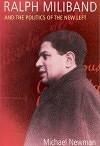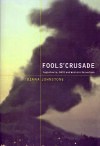History
Juan Gonzalez, Harvest of Empire: A History of Latinos in America(New York:Viking Penguin, 2000), 346 pp., $27.95 cloth, $15 paper.
With passion and eloquence, Juan Gonzalez presents a devastating perspective on U.S. history rarely found in mainstream publishing aimed at a popular audience. The United States emerged in just two hundred years, he points out, as the world’s superpower and richest nation. “No empire, whether in ancient or modern times, ever saw its influence spread so far or determined the thoughts and actions of so many people around the world as our nation does today.” The majority of U.S. people don’t like to think of their country as an empire | more…
2000 marks the fortieth anniversary of the southern sit-in movement, the emergence of the civil rights struggle of the 1960s, and the founding of its most dynamic component, the Student Nonviolent Coordinating Committee (SNCC). We believe it is important to look back at the achievements of those courageous men and women, both to celebrate their struggle and to learn from their experience. The following article is adapted from a talk originally given last summer at a seminar far college and university teachers, on the history of the civil rights movement at Harvard’s W. E. B. Du Bois Institute for Afro-American Studies.—Eds. | more…
Deane, Hugh, The Korean War, 1945-1953 (San Francisco: China Books and Periodicals, Inc., 1999), 246 pp., $14.95, paperback.
Hugh Deane has written a concise, political, and engaging history of the Korean war. One reason this book is special is that Deane was in southern Korea during the late 1940s as a reporter, and his experiences there enable him to provide a more immediate and personal perspective on events than one normally finds in histories of the Korean war | more…

When health policy is looked at from the point of view of which issues involve a direct confrontation of fundamental, ruling-class interest, which ones involve simply relative benefits to a class, and which are relatively neutral, we can predict which kinds of measures are possible. This highlights the lie in the notion that society is trying to improve health for everybody. | more…
Tony Hiss, The View from Alger’s Window: A Son’s Memoir (New York: Alfred A. Knopf, 1999), 241 pp., $24, hardcover.
The View from Alger’s Window is a fascinating book. Even if the father and son who share the stage in this memoir were completely anonymous, it would still be an absorbing story. Probably for most readers, however, and surely for almost all Monthly Review subscribers, the father’s name will reverberate with what Jack Gelber’s Nation review describes as a Nixon-manipulated “story of well-timed leaks, stage-managed press conferences, masterful misleading language.” But as the author himself says, a major objective of his work is to “transform Alger Hiss from a case to a person.” This he has certainly done | more…
At the outset of this closely argued history of Mexican capitalism, James Cockcroft asks, “How long will the majority of Mexicans put up with being exploited on both sides of the Mexican-U.S. border? ” | more…

This volume brings together the work of leading Marxist analysts of imperialism to examine the burning question of our time—the nature and prospects of the U.S. imperial project currently being given shape by war and occupation in the Middle East. | more…
What do Helmut Kohl and Elián Gonzáles have in common? What could possibly unite the destinies of the huge former Chancellor of Germany, who for so many years dominated European politics and played the part of senior statesman on the global stage, and the little boy whose only political role so far has been as pawn in the hands of fading right-wing Cuban fanatics in Miami? | more…

Ralph Miliband (1924-94) was a key twentieth century political thinker. His books The State in Capitalist Society and Parliamentary Socialism influenced a generation of the left. Miliband was an academic and public intellectual whose life and work were devoted to the attempt to define and apply an independent form of socialism. He was an influential teacher and theorist who played a key role within the political and intellectual community of the Left, both in Britain and in North America, where he held several visiting professorships. | more…

Military interventions on supposedly humanitarian grounds have become an established feature of the post–Cold War global order. Since September 11, this form of militarism has taken on new and unpredictable proportions. Diana Johnstone’s well-documented study demonstrates that a crucial moment in establishing in the public mind — and above all, within the political context of liberalism and the left — the legitimacy of such interventions was the “humanitarian” bombing of the former Yugoslavia in 1999. | more…

Popular culture has been a powerful force in the United States, connecting disparate and even hostile constituencies. The novels of the late eighteenth and early nineteenth centuries, the theater and minstrel shows of the mid-nineteenth century, movies and the introduction of television and computers in the twentieth century are the building blocks that Jim Cullen uses to show how unique and vibrant cultural forms overcame initial resistance and enabled historically marginalized groups to gain access to the fruits of society and recognition from the mainstream. | more…

We live in an age of unprecedented historical crisis. Its severity can be gauged by the fact that we are not facing a more or less extensive cyclic crisis of capitalism as experienced in the past, but the deepening structural crisis of the capital system itself. | more…





